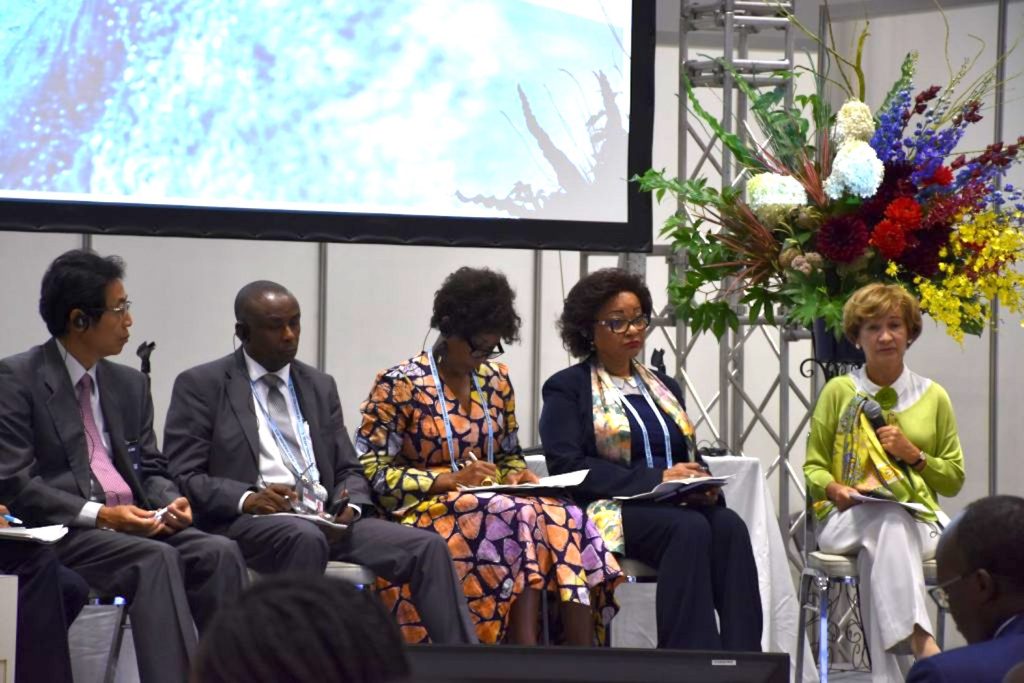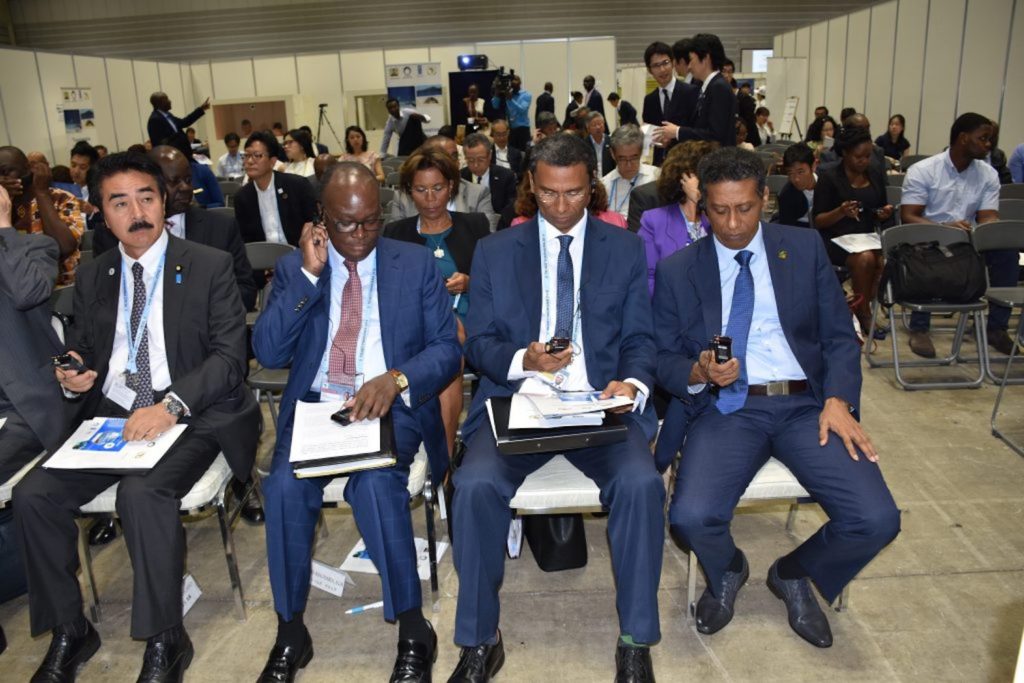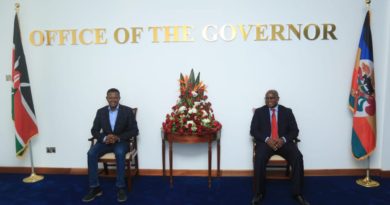African Countries Urged to Invest in Sustainable Blue Economy
Kenya co-hosted with Japan and United Nations Development Programme (UNDP) a side event on Sustainable Blue Economy on the margins of the 7th Tokyo International Conference on African Development (TICAD7) meant to mainstream the blue economy in the Ticad process, seek in-depth partnerships as well as to sustain momentum on the Blue Economy agenda in Kenya and within Africa.
The event was attended by President of Seychelles H.E Danny Faure, Cabinet Secretary James Macharia and Cabinet Secretary Amb Ukur Yatani. The side event provided another unique opportunity to exchange views on how best to advance the global sustainable Blue Economy, after the successful Sustainable Blue Economy Conference in Nairobi in November last year. It was noted that in developing countries Blue Economy remains largely underutilized yet it has been recognized as the great engine of growth and prosperity and the driver of industrialization in the developed world. He called on developing countries to comprehensively integrate blue economy into development programs.
“The policies around this huge sector quite often are handled separately from other sectors of development and yet this sector can drive economic growth, promote social stability and prosperity as well as environmental protection. This is a gap that we need to close if we are to strengthen coherent planning and coordination that can improve on existing development processes and lead to robust and genuinely sustainable development”.— President of Seychelles H.E Danny Faure
He welcomed the current global interest in sustainable development and called for collaboration as a means to end poverty.
“The current global interest in the development and conservation of the resources of a sustainable blue economy are welcome in augmenting efforts aimed at poverty eradication, food and nutritional security and overall development of our people. But we can do more through enhanced partnerships”.–President of Seychelles H.E Danny Faure
He called on the global community to embrace and create awareness of the importance of oceans and water with explicit coordination and planning not just at national level, but at the regional and international levels and noted that its only through the successful development of the blue economy that we can realize the UN 2030 Agenda and AU’s Agenda 2063.
He reiterated the need for all stakeholder to fully embrace commitments made during the Sustainable Blue Economy Conference held in Nairobi which he noted have the potential to stimulate and deepen collaboration between and among governments and stakeholders on blue economy, and to help align the blue economy with the needs of the society. He said the commitments hold the key to unlocking the full potential of the ocean, seas, lakes and rivers and accelerating economic growth, job creation and poverty eradication while at the same time conserving the environment.
Turning to Kenya, the President said his Government’s long-term policy objective is to achieve a strong and sustainable economic growth, providing a high quality of life for all citizens by the year 2030.
He noted the challenges that hinder progress such unsustainable human activities that threaten marine life through dumping of toxic materials that threatens to wipe out the aquatic life ecosystem. It is estimated that by 2050, there will be more plastic materials in numbers and weight than fish.
Japan is in the frontline in the fight to reduce marine plastic litter pollution to zero by 2050 under the auspices of the “Osaka Blue Ocean vision”. Kenya has shown its commitment by banning the production and trade in plastics in its environment including in the ocean, lakes, rivers and other water masses. The President called on every individual and every nation to declare zero tolerance to marine plastic litter and ‘walk the talk’.
As land resources continue to diminish the developing world in particular was challenged to show collective determination and commitment to efforts at the local, national, regional and international levels to intensify investment in the blue economy sector to create millions of jobs and accelerate economic transformation.
Japan’s leadership in renewable sources of energy, deep-sea mining, Research and Development (R&D) in marine biotechnology and submarine digital systems are all cutting edge technologies that Africa can benefit from.





